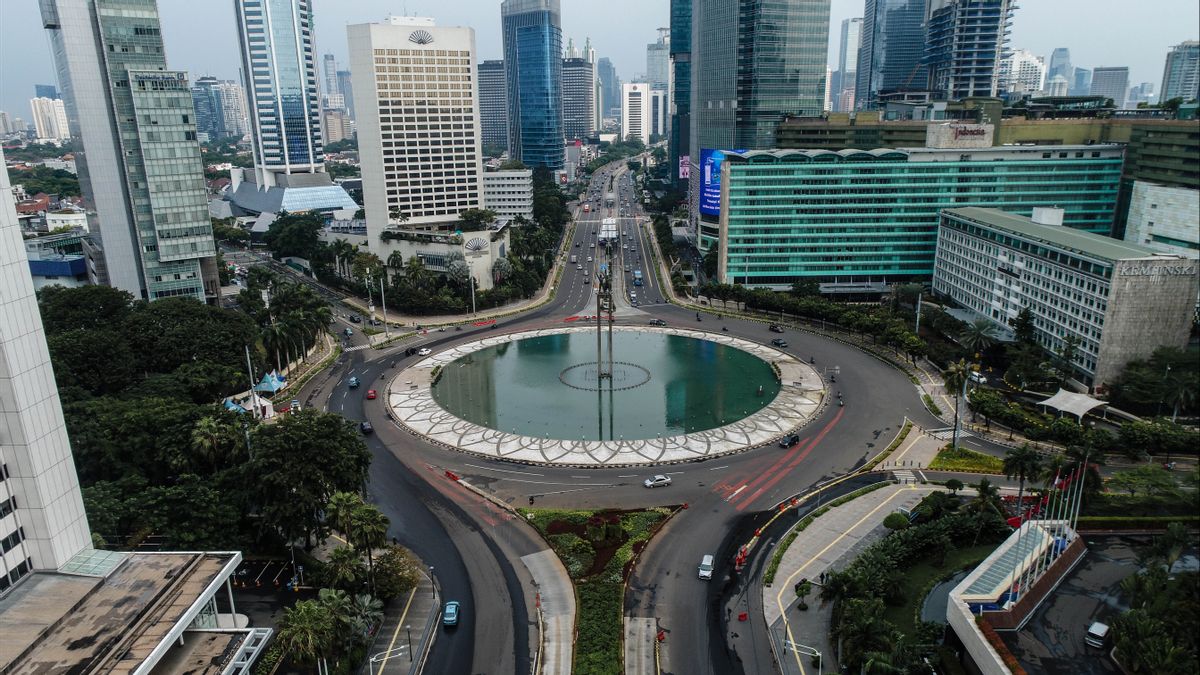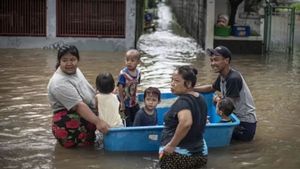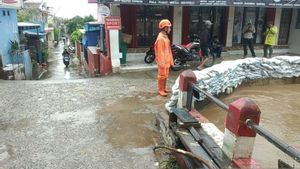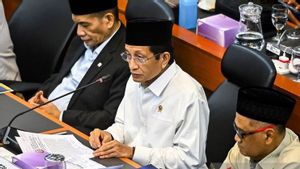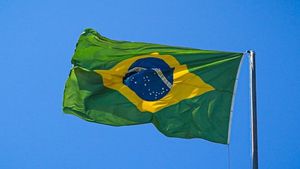JAKARTA - DKI Jakarta Governor Anies Baswedan asked the public not to underestimate the PSBB transition period which will take effect from June 5 tomorrow.
Even though some social, economic, religious work, and so on have been opened, DKI residents still have to undergo COVID-19 prevention protocols, such as wearing masks, maintaining distance, and always washing their hands with soap.
In accordance with the Regulation of the Governor of DKI Number 33 of 2020 concerning PSBB, every person who does not wear a mask when leaving the house will be subject to a fine of IDR 250 thousand.
Previously, Anies had postponed the imposition of fines for residents who did not wear masks. This is because the DKI Provincial Government must fulfill the promise of procuring 20 million masks to be distributed free of charge. Now, Anies claims that 20 million masks are available and distributed.
"The DKI Provincial Government has distributed 20 million free masks. So, there is no reason not to have masks. If you don't have one, come to the urban village office, there are free masks," said Anies at DKI City Hall, Central Jakarta, Thursday, June 4.
Anies indicated that there would be strict enforcement when the number of COVID-19 cases in Jakarta increased again during the PSBB transition period because residents did not heed health protocols.
He explained that the PSBB mechanism for the transition period currently in use is the emergency brake policy. When the conditions turn out to be worrying, the PSBB easing will be stopped entirely.
"Now we are entering a transitional period. Let's not go back again. If we are not disciplined, there will be a crowd without a safe distance. As a consequence, we can see a spike in cases as if we were going back to previous months," said Anies.
"If that happens, then the DKI Jakarta Provincial Government, the DKI Jakarta Task Force, will not hesitate and will not delay using its authority to stop socio-economic activities during this transitional period," he added.
Anies extended the PSBB period in Jakarta starting tomorrow, the 5th until an undetermined time. However, this phase four PSBB is a transitional phase.
During June, Jakarta still implemented restrictions by implementing the COVID-19 prevention protocol, but with the previous easing of the PSBB. The goal is that people can do activities to fulfill their daily needs.
In detail, activities that have been reopened from the social and cultural sectors are outdoor sports facilities, museums, galleries, libraries, parks, RPTRA, and beaches. Then, offices and houses of worship also reopened.
In addition, the types of business premises will be opened gradually starting on June 8. On Monday, June 8, the places of business that may be opened are restaurants (independent), industry, warehousing, shops, workshops, services, photocopying, and other supporting services. Meanwhile, on Saturday, June 13, MSMEs under the guidance of the DKI Provincial Government may be opened.
Then, on June 15, Anies only allowed the opening of mall markets and shopping centers other than those providing food. All these places are allowed to only accommodate 50 percent of the total existing capacity. On June 20, the theme park and zoo will open.
All places that are reopened must comply with regulations by reducing capacity by 50 percent, and implement COVID-19 prevention protocols.
However, there are activities that have not yet been decided to open. This activity will only be opened during the phase two transition period, after the DKI Provincial Government has reviewed the PSBB during the first phase of the transition.
These activities are religious activities with mass gathering, schools, gyms, swimming pools, night markets, folk festivals, beauty clinics, salons, conference halls, wedding and circumcision receptions, cinemas, night entertainment, butuk, and the like.
In addition, starting tomorrow, all public vehicles can resume operations with a 50 percent storage capacity. The MRT and Transjakarta will operate in normal hours with short headways.
In private vehicles, motorbikes and cars are allowed to carry 100 percent of the capacity provided that all are one family. Meanwhile, in general, private vehicles can only accommodate 50 percent. Then, Anies allowed base ojek or online ojek to operate starting Monday, June 8.
The English, Chinese, Japanese, Arabic, and French versions are automatically generated by the AI. So there may still be inaccuracies in translating, please always see Indonesian as our main language. (system supported by DigitalSiber.id)
